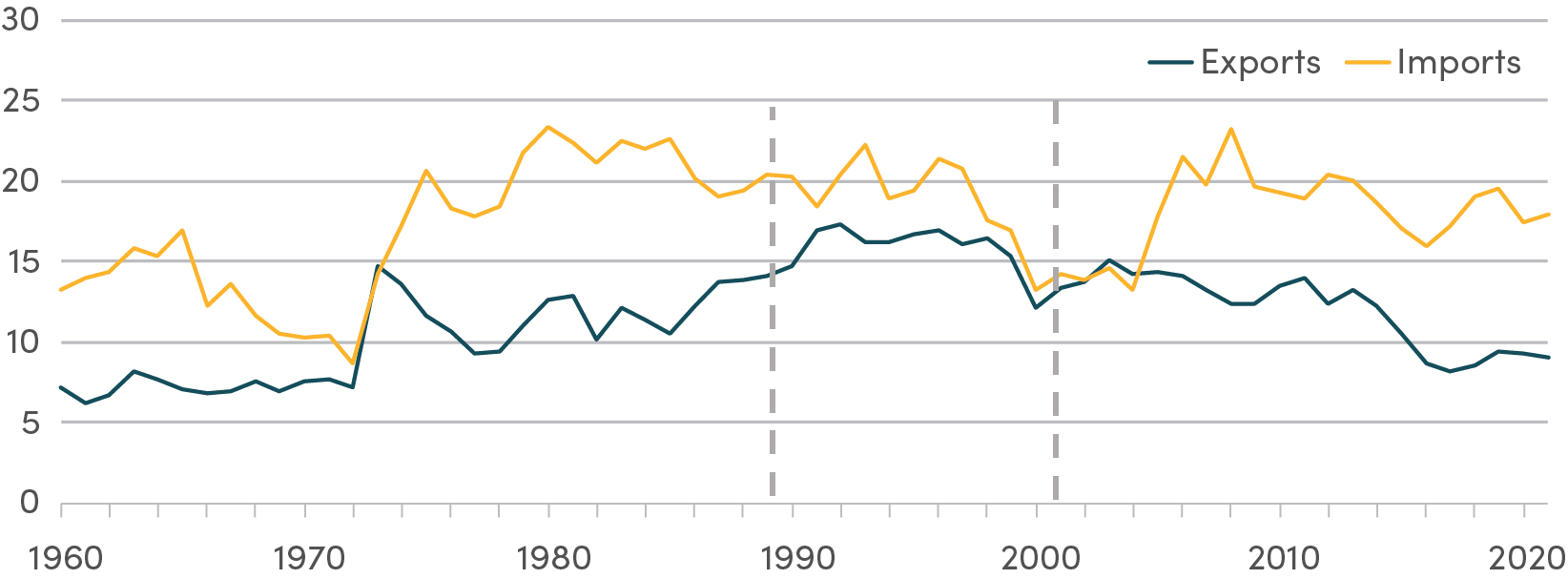There has been an unfortunate tendency in this year’s US presidential campaign to make trade policy an “us against them” story. It is true that the US government does not do enough to compensate those who lose from trade, or to help individuals and industries adjust to the changes that more open markets bring. But rhetoric pitting poor people in the United States against even poorer people elsewhere helps neither.
The problem is not that the United States doesn’t “win” when it negotiates trade deals. Take the Trans-Pacific Partnership (TPP): US negotiators generally got what they wanted out of the deal and gave up little. That’s because, outside a handful of sensitive sectors, US tariffs are already low.
But policies aimed at protecting sensitive sectors do have an impact. One clear example of how US trade policy pits the poor at home against the poor in other countries is in the clothing sector. Vietnam is the poorest of the 12 TPP signatories, by far, and it is a major clothing exporter. Clothing is a labor-intensive industry in which developing countries often have a comparative advantage. It is also an important avenue for women to enter the formal labor market, which can bring a range of social and development benefits. Clothing is also a necessity, and lower prices due to trade help poor consumers as well.
As I discuss in a new paper, however, Vietnam will gain very little new market access in this key sector for at least several years. Even after US tariffs disappear, Vietnam may not be able to take advantage unless the country is able to adjust to the very restrictive rule of origin for clothing that US negotiators insisted on including in the TPP.
While US tariffs overall are in the low single digits, the average tariff on clothing imports from Vietnam is 18 percent. In 2014, US Customs and Border Protection collected $2.4 billion in duties on imports from Vietnam, more than any other country in the world except China. While US negotiators agreed to lower the high tariffs for most of Vietnam’s major clothing exports by one-third when the TPP enters into force, the remaining tariffs will remain in place for 10 to 12 years.
|
Table: US Import Duties by Source Country* in 2014 (million dollars)
|
|
TPP parties
|
|
Other top ten
|
|
Vietnam
Japan
Malaysia
New Zealand**
Brunei
|
2,378
2,295
222
35
2
|
|
China
Germany
Indonesia
Italy
India
Bangladesh
Taiwan
United Kingdom
Cambodia
Thailand
|
13,914
1,889
1,180
1,056
1,024
824
676
495
460
458
|
|
* Excludes countries with which the United States had a trade agreement before TPP.
** This figure understates the degree of US protection against New Zealand exports because the tariffs on over-quota imports of dairy products are so high that they prevent additional imports, while the tariffs on in-quota imports are relatively low.
|
Reducing and eventually eliminating tariffs will lower the cost of importing clothing from Vietnam. Even then, rules of origin, which determine the eligibility of goods for TPP benefits, will at least partially offset that gain. As I explain in the new paper, the TPP rule for clothing, as in other US trade agreements, requires that all of the major inputs, from the “yarn forward,” must originate from one or more of the TPP parties. Currently Vietnamese producers import most of the textile inputs they use in clothing from outside the TPP region. If shifting those sources raises costs enough, exporters may have to forego the TPP tariff benefit, and along with it the potential to create more jobs.
Trade is not costless, but the gains are generally larger than the losses, both domestically and internationally. Rather than pitting “us” against “them,” I hope the next president will do what desperately needs to be done to improve American competitiveness and ensure that the gains from trade are broadly shared—at home and abroad.
CGD blog posts reflect the views of the authors, drawing on prior research and experience in their areas of expertise.
CGD is a nonpartisan, independent organization and does not take institutional positions.





